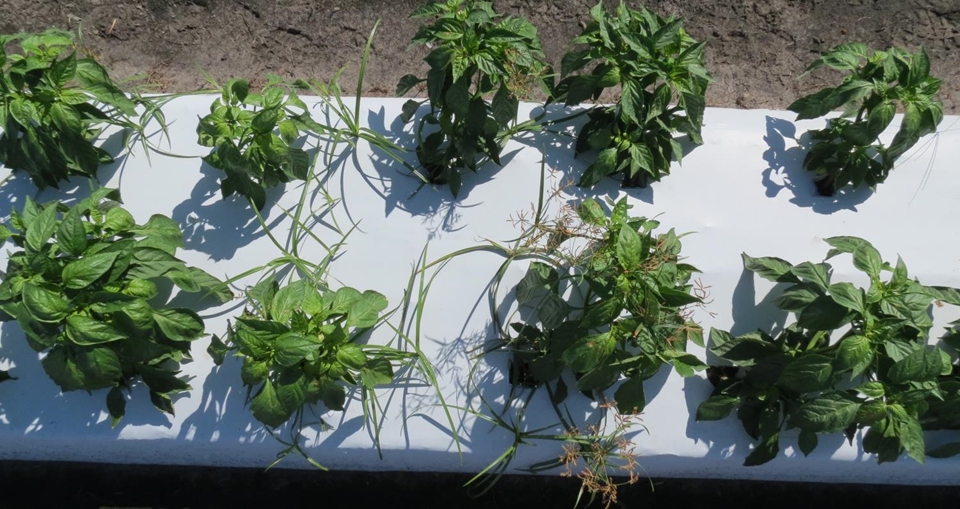By Clint Thompson Nutsedge may not be the most problematic weed Florida vegetable and specialty crop producers encounter every year, but it is a problem. Nutsedge is most concerning because it is the only weed to puncture through plastic mulch, says Nathan Boyd, University of Florida Associate Center Director and Associate Professor of Horticulture/Weed Science at the Gulf Coast Research …
Florida Citrus Forecast Continues Improvement
Florida’s citrus forecast for the 2020-21 season continues to improve but lags behind the previous season. According to the National Agricultural Statistics Service, Florida’s all orange forecast was at 52.7 million boxes 2.37 million tons. This is an improvement of 2% from the previous forecast but still a decrease of 22% from last year’s final utilization. Florida’s early, midseason and …
Rubio, Scott Urge Reimplementation of Prohibition on Chinese Citrus Imports
Florida’s two U.S. Senators implored U.S. Department of Agriculture Secretary Tom Vilsack this week to re-implement a prohibition on the importation of five varieties of citrus fruits from China. Senators Marco Rubio (R-FL) and Rick Scott (R-FL) sent a letter to Vilsack this week in an effort to protect Florida’s citrus growers. The lletter focused on potentially exposing the state’s …
Drought Update: North Florida, South Georgia Remains Abnormally Dry
According to Thursday’s release of the U.S. Drought Monitor, abnormally dry conditions continue to persist across South Georgia and North Florida. As far west as Decatur County, stretching to the coast and as far north as Coffee and Irwin Counties are abnormally dry in Georgia. Counties as far west as Wakulla and Gasden, stretching eastward and as far as south …
AI: UF Research Focused on Helping Strawberry Producers With Weed Control
BALM, Fla. — The future of farming is being researched today with artificial intelligence (AI). University of Florida scientists Nathan Boyd and Arnold Schumann hope to help growers in the strawberry industry, a $300 million-a-year sector in Florida, with weed control. They want to reduce the amount of herbicide spray strawberry growers use during the season. That saves farmers money …
Pandemic Cover Crop Program Deadline is June 15
By Clint Thompson Vegetable and specialty crop producers who utilize cover crops have until Tuesday, June 15 to sign up for the Pandemic Cover Crop Program. The implementation of cover crops requires a long-term investment from the producer. The COVID-19 pandemic provided economic challenges for growers to maintain those cover crop systems. The Pandemic Cover Crop Program, which is offered …
Mini Melons: Costs, Lack of Demand Limiting Market Share
By Clint Thompson High production costs and lack of demand have kept mini melons from taking a big bite out of the watermelon industry, believes Josh Freeman, University of Florida/IFAS Associate Professor in Horticultural Science. “They may have been making small incremental gains, but I don’t think they did what many people thought they were going to do 15, 17, …
Low Prices Linger for Vegetable Producers
By Clint Thompson Low market prices and higher input costs equal a challenging season for the region’s vegetable and specialty crop producers. In a time when farmers need commodities to sell high, prices are among the lowest in recent memory. “I would say right now that prices are as low as I’ve seen them for this time of year. Pick …
Watermelon Prices Just Average Amid Rising Input Costs
By Clint Thompson The watermelon prices that were good, maybe, 10 years ago are not so much in the current economic climate. Branford Florida watermelon producer Laura Land estimated that current prices are approximately 18 to 20 cents per pound for 45-count seedless; roughly $126 per bin. However, the same input expenses that cost Southeast vegetable producers all spring are …
UF/IFAS Specialist: Every Time You Have Nutrient Leaching, You’re Losing Money
By Clint Thompson Sandy soils dominate the soil landscape for vegetable production throughout Florida, according to University of Florida (UF)/IFAS. They provide growers distinct advantages, such as an ease of tillage and production of the earliest vegetable crops. However, a key disadvantage is the ability of nutrients to be leached, specifically with nitrogen, potassium and phosphorous. Leaching refers to nutrients …










